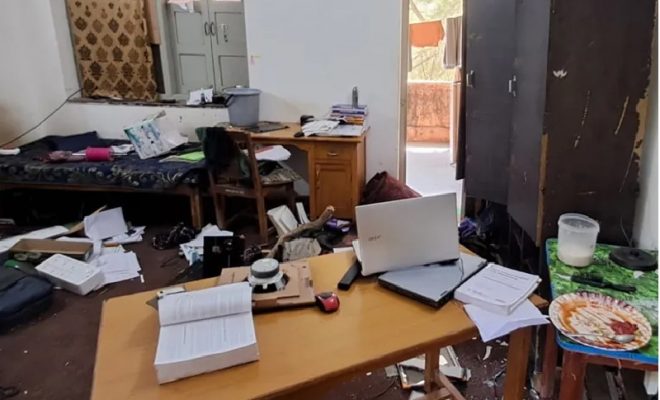Gujarat University VC: Namaz alone not cause of foreign students’ attack

The evening at Gujarat University in Ahmedabad turned tumultuous when a group of individuals reportedly assaulted foreign students who were performing namaz within the university premises. This altercation led to injuries sustained by multiple individuals, including students from Sri Lanka and Tajikistan who were subsequently hospitalized. The incident, which occurred on a Saturday night, shocked the community and raised questions about the safety and inclusivity of educational institutions.
Factors Contributing to the Violence
In the aftermath of the incident, Gujarat University’s vice-chancellor, Neerja Gupta, offered insights suggesting that the violence might have deeper roots beyond the immediate provocation of namaz. Gupta highlighted a potential lack of awareness and understanding of local customs and cultural sensitivities among foreign students. She pointed out that the disposal of non-vegetarian food leftovers, common among foreign students, could have caused discomfort in Gujarat’s predominantly vegetarian society. This cultural clash, exacerbated by ignorance and misunderstanding, may have played a significant role in escalating tensions and triggering the unfortunate incident.
Response from Authorities
Gujarat Police swiftly responded to the situation, apprehending several individuals suspected of involvement in the attack. An FIR was filed against approximately 25 unidentified persons, encompassing charges such as rioting, unlawful assembly, and causing damage to property. The state government assured the public of stringent action against those responsible for the violence, signaling a commitment to upholding law and order within the region. This decisive response from the authorities aimed to restore confidence in the safety and security of educational institutions and reassure the affected community, both domestic and international.
Also Read | Eminent Ex-Judge Defends Biden’s Judicial Nominee
Public and Official Reaction
The incident sparked widespread condemnation from various sectors of society, eliciting strong reactions from opposition parties and government officials alike. Critics seized upon the incident as a reflection of broader concerns regarding the state’s management of law and order. The Ministry of External Affairs also took cognizance of the situation, with spokesperson Randhir Jaiswal issuing a statement on social media. Jaiswal affirmed the government’s stance on the matter, emphasizing the need for accountability and swift action against the perpetrators. The incident prompted soul-searching conversations within the community, highlighting the importance of fostering mutual respect, understanding, and tolerance among diverse cultural groups.
The violence at Gujarat University serves as a stark reminder of the challenges inherent in multicultural societies and the imperative of promoting cultural sensitivity and intercultural dialogue. While the immediate trigger may have been an altercation over religious practices, the underlying tensions reflect deeper issues of ignorance, intolerance, and miscommunication. Moving forward, it is essential for educational institutions and communities to prioritize initiatives aimed at fostering cross-cultural understanding and respect. By addressing root causes and promoting inclusivity, societies can strive towards building harmonious coexistence and preventing future incidents of violence and discrimination. The response from authorities and the broader public underscores the collective commitment to upholding the values of peace, unity, and diversity within society.



